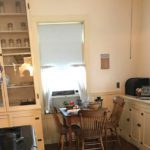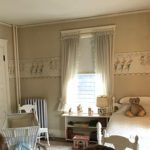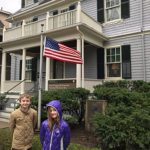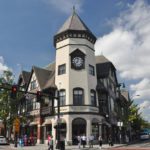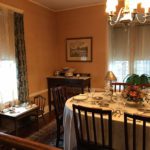JFK’s Birthplace: A Site To See 100 Years Later
By • May 3, 2017 0 743
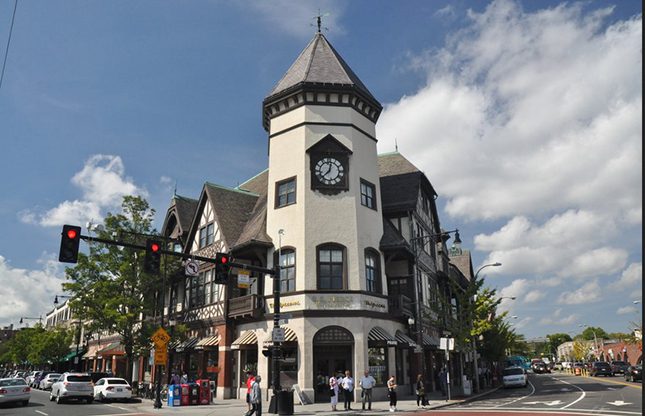
Taking small children to historic cities and sites can be a challenge, as just about every parent or grandparent knows. I have faced that challenge many times with my kids over the years. They grow quickly bored with the old things. It is hard for them to relate to the past.
But there is one historic site in the Boston area that children seem to love (it has actually been adopted by the third-grade class of the nearby elementary school): the house in Brookline where John F. Kennedy, 35th President of the United States, was born on May 29, 1917. This month marks his 100th birthday.
The house where the American story of Camelot began is located at 83 Beals Street, a shady and narrow one-way side street with bumpy sidewalks lined by shingled two- and three-story homes, all well cared for and lived in. JFK’s parents, Joe and Rose Kennedy, moved into the three-bedroom home in October 1914 as newlyweds.
By 1920, when they moved to a larger home a few blocks away, they had four children: Joseph, born in 1915; John in 1917; Rosemary in 1918; and Kathleen in 1920. Three more Kennedys — Eunice, Patricia and Robert — were born in the Abbottsford Road house in Brookline. The eighth, Jean, and the last of the nine children, Edward (Ted), were born in Dorchester (within the Boston city limits).
JFK’s birthplace became a National Historic Site in July 1964, eight months after he was assassinated in Dallas. Over the next five years, Rose Kennedy personally collected household furnishings, photographs and significant mementos to refurnish and refurbish the house as exactly as she could from her memories of living there between 1914 and 1920. U.S. Park Rangers and volunteers give tours of the house from May to October and there are audioclips of Rose describing her life there. The church she attended twice a day for more than 10 years is up the block. The Edward Devotion Elementary School, a public school where John went to kindergarten, is on the next corner.
In fact, it’s the school my grandchildren attend. They live across the street from JFK’s birthplace and love visiting the house. They love seeing the nursery upstairs, where John was confined for almost a year when he suffered serious respiratory diseases; the kids point out his favorite books and toys that lie about. The kitchen with its old toaster and stove and an icebox outside on the porch interest them greatly as well. But their favorite room is the dining room, with its big, formally set table and the little table, set equally formally, under the window for the children.
My grandson Isaak can tell you a lot about what JFK did as president. Just last year he participated in the annual “What John F. Kennedy Means to Me” essay and poetry program sponsored by the historic site and his school. “He worked hard to end segregation,” his class wrote. “He felt strongly about helping others, about the space race and equal rights. He created the Peace Corps and worked for peace.”
Brookline is a charming town to visit in itself. Founded in 1705, it rejected annexation to the expanding city of Boston in 1873. Easily accessible from Boston on the Green Line of the “T” to Coolidge Corners, it is a thriving and liberal town. Brookline residents were among the first in the country to propose extending the vote to women in the 1880s. From a strong Protestant and Catholic demographic, it now has become a cultural hub for the Jewish community of Greater Boston.
Brookline is also home to one of the best community bookstores in the country, Brookline Books. Like D.C.’s renowned Politics and Prose, Brookline Books features almost daily speakers and a large selection of books on current events. Many stores sport signs saying “We Welcome Refugees” in their windows, reflecting the Kennedy family’s own background as immigrants. In 1958, Jack Kennedy coined the phrase “A Nation of Immigrants” as a title of a short book he authored.
- Rose Kennedy’s kitchen from 1914.
- Isaak and Nina Orchowski in front of the John F. Kennedy home. Photos by Peggy Sands.
- At the Coolidge Corners “T” stop, this building is an icon of Brookline.

